MVS speaker builds bridges by ‘arguing joyfully’
Featured Stories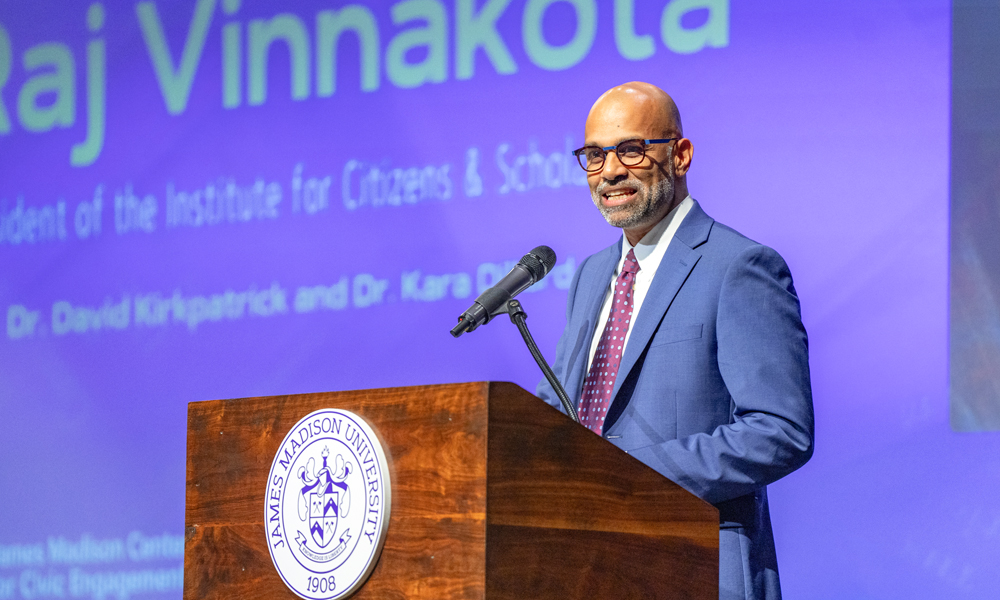
SUMMARY: Rajiv “Raj” Vinnakota, president of the Institute for Citizens & Scholars, urges constructive dialogue beyond familiar social circles. Speaking during a Constitution Day fireside chat, he said civil discourse can lead to community decision-making and social change.
Rajiv “Raj” Vinnakota, president of the Institute for Citizens & Scholars, spoke about bridging political divides and the role of democracy in higher education during a Constitution Day fireside chat in Wilson Hall on Sept. 25. The event was part of the 2024-25 Madison Vision Series.
“We see the outcomes of productive civil discourse all around us,” Vinnakota noted. “It’s everywhere. And when I say everywhere, I don’t mean just within the bubble of friends or home communities or the people that are just around you. It can also happen, and needs to happen, across political and ideological lines, because there’s often overlap to be found.”
Vinnakota invited attendees to recognize the potential for constructive dialogue beyond their familiar social circles. By sharing personal experiences and insights, he said, civil discourse can lead to tangible outcomes, such as community decision-making and social change.
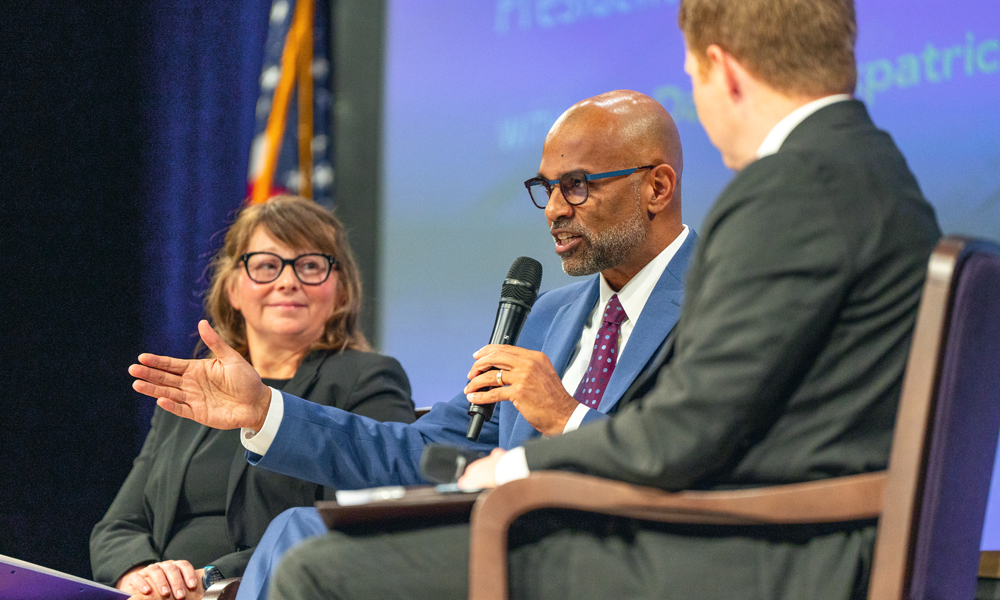
Recalling a story about the late South African activist and politician Nelson Mandela, “who was imprisoned for 27 years during apartheid,” Vinnakota stressed how, “instead of seeking revenge, he pushed for reconciliation.”
|
“[Social discourse] is the most important skill you [have], so consider this as an early lesson. Like any skill, you’ll hone it with practice. You’ll do it in an adverse environment.” |
“In 1996, years later, Mandela was president [of South Africa], creating the Truth and Reconciliation Commission to help people have respectful conversations about past injustices,” Vinnakota said. “Mandela himself personally engaged in civil discourse with those who had once been his adversaries, and guess what? His approach to civil discourse helped heal a nation, as it moved from a white-only government to a multiracial [one].”
Vinnakota also spoke of his friend, Eric, who helped him open a boarding school for under-resourced students in Washington, D.C. “This wasn’t your typical boarding school,” he said. “Students lived with us during the week, and then they went home on weekends to stay connected.
“Eric and I shared many of the same core values, but we didn’t always see eye to eye on issues of public concern, including our views on how to change the education system,” Vinnakota said. “You might be surprised to hear how we could be business partners and not agree on education. … Most issues are not clearly binary; they’re not simple pro and con.”
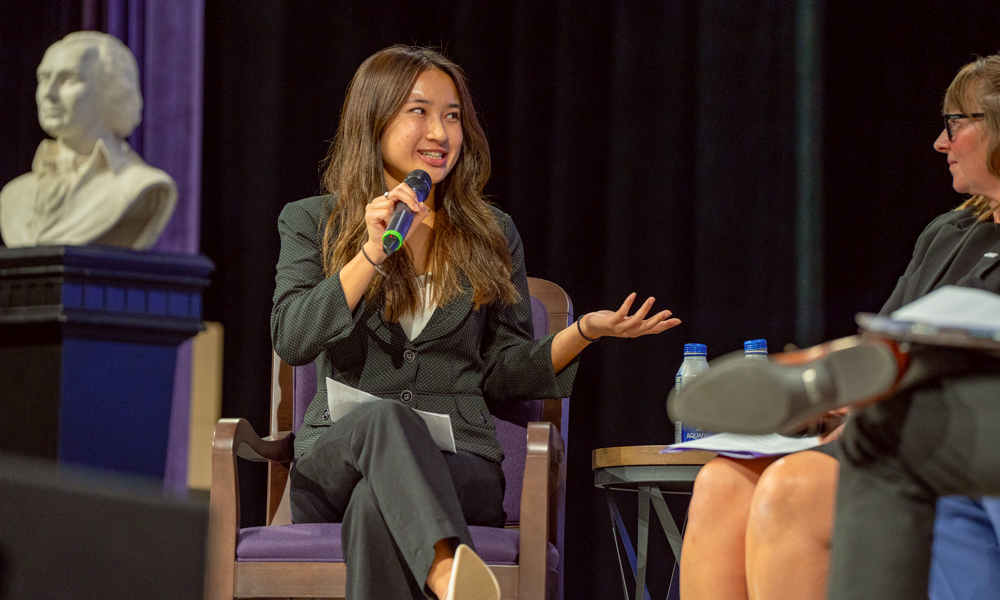
Vinnakota said he and his friend needed to learn to agree to disagree. “After all,” he said, “we were equal partners in a nonprofit that we started together.”
Ultimately, they agreed they would discuss and debate the issues until they understood their differences and could settle on the best position for the organization. “Sometimes it took a few minutes; in other instances, it took a few hours, and a few times it went overnight for as long as necessary,” Vinnakota said.
“We had committed to stay in community — that is, to lead our organization and to understand and debate our approaches, to get to the best place for our organization,” he said. “And we did this so often, and in full visibility of our colleagues, that we ended up making it a core operating value. We called it arguing joyfully. In actuality, it was civil discord.”
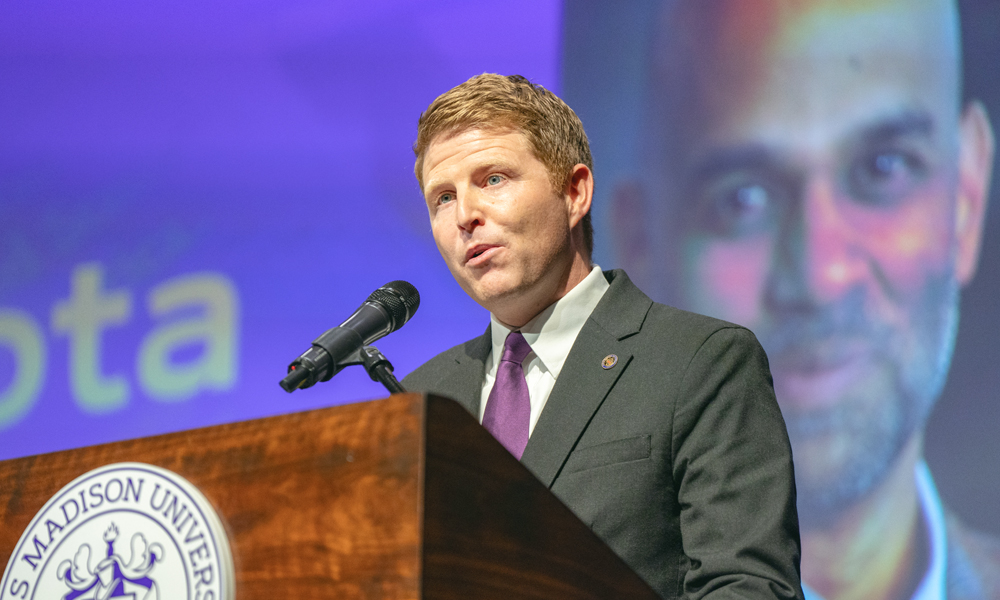
Vinnakota also spoke to the practical implications of civil discourse for the students in attendance. “Learning and practicing civil discourse will be a gamechanger for these tough conversations and also be a gamechanger right here at JMU for your college experience,” he said. “It’ll help you understand different perspectives and build stronger relationships.”
The program emphasized that civil discourse is not merely a theoretical concept, but a practical skill that can be developed over time.
“The good news here, at JMU, is that the school is providing you many opportunities to practice,” Vinnakota said. “Over time, you’ll get better at it, and your civil discourse muscle will grow strong.”
Vinnakota also highlighted the importance of seizing opportunities for discourse as they arise.
“I hope you make the most use of this time to practice and build this,” he said. “Think of it as a chance to contribute to a more inclusive understanding. This is the most important skill you [have], so consider this as an early lesson. Like any skill, you’ll hone it with practice. You’ll do it in an adverse environment.”
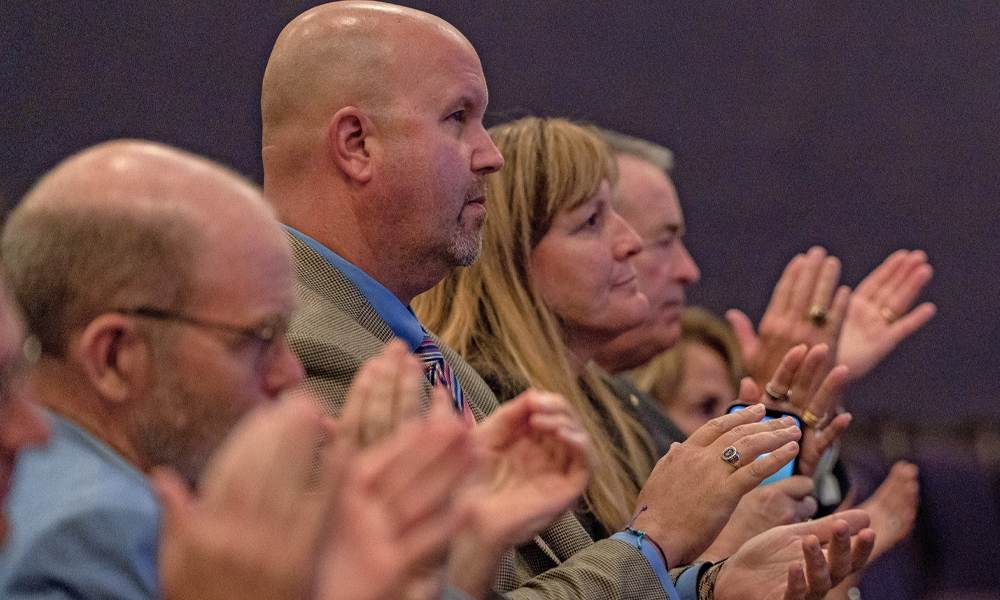
After his presentation, the Switzerland native shared how his immigration story helped shape his values. “I’m an immigrant here. I think that’s an important part of thinking about why I hold the values that I’ve discussed so dearly,” Vinnakota said. “That’s why, for me, this is not just a vocation, but advocacy, something that I believe deeply.”
|
“I’m an immigrant here. I think that’s an important part of thinking about why I hold the values that I’ve discussed so dearly. That’s why, for me, this is not just a vocation, but advocacy, something that I believe deeply.” |
The Institute for Citizens & Scholars is a leading foundation for talent, ideas and networks that inspires young people to be empowered, lifelong citizens. Vinnakota leads the institute’s College Presidents for Civic Preparedness initiative, a coalition of 92 college and university leaders focusing on creating campuses as vibrant, civic-engagement and civil-discourse hubs. JMU is one of 12 founding members of the initiative.
Vinnakota co-founded the SEED (Seeking Educational Equity and Diversity) Foundation, the nation’s first network of public, college-preparatory boarding schools for underserved students. He served as executive vice president of the Aspen Institute, which offers programs devoted to youth leadership development and civic engagement, and he is the co-chair of the Civics and Civic Engagement Taskforce for the U.S. Semi-quincentennial Commission, which is responsible for promoting and coordinating the 250th anniversary of the country’s founding in 2026.
Joining Vinnakota for the panel were David Kirkpatrick, vice president and chief of staff at JMU; Kara Dillard, interim executive director of the Madison Center for Civic Engagement and co-director of the Institute for Constructive Advocacy and Dialogue; and undergraduate Democracy Fellow Ai Vy Le.
